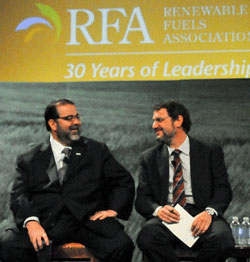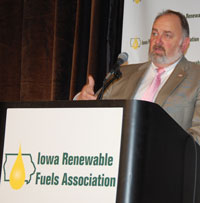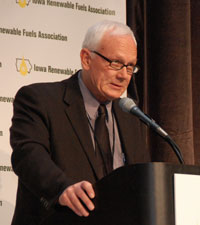Algae oil extraction technology developer OriginOil has signed a commercial agreement with algae producer Aquaviridis to work on a multi-phase algae production rollout at a facility in Mexicali, Mexico.
 Under the agreement, OriginOil will provide its expertise to help develop growth and harvesting solutions and implement appropriate OriginOil technologies. The Mexico facility is being developed as a potential model for algae sites throughout the North American Free Trade Agreement (NAFTA) region, with a focus on desert areas of the American Southwest and Mexico.
Under the agreement, OriginOil will provide its expertise to help develop growth and harvesting solutions and implement appropriate OriginOil technologies. The Mexico facility is being developed as a potential model for algae sites throughout the North American Free Trade Agreement (NAFTA) region, with a focus on desert areas of the American Southwest and Mexico.
Minnesota-based Aquaviridis is backed by private sector funding, with plans to immediately scale up from research and development to ten acres of pilot algae production by the middle of this year. Commercial scale production capacity is expected by the second quarter of 2013. Aquaviridis selected the Mexicali Valley as a strategic location due to favorable growing conditions, strong local and governmental support, and available sources of carbon dioxide.
“The Mexicali Valley is a great place to develop an algae industry, given its climate and access to industry research and resources throughout North America,” said OriginOil vice president of marketing Ken Reynolds. “With the U.S. as a neighboring market for high value exports, Mexico is in an excellent position to take the lead in areas such as research and production of algae for nutritional products, animal feed, and oil for biofuels, which would create long-term regional economic growth and job production.”


 The 2012
The 2012  “Because ethanol produced in Sao Paulo is tax exempt, ethanol imported into Sao Paulo from the United States and other areas is at a substantial economic disadvantage,” wrote RFA President and CEO Bob Dinneen to Ambassador Ron Kirk. “We believe this action is discriminatory and may severely—and immediately—restrict the exportation of U.S. ethanol to Brazil.”
“Because ethanol produced in Sao Paulo is tax exempt, ethanol imported into Sao Paulo from the United States and other areas is at a substantial economic disadvantage,” wrote RFA President and CEO Bob Dinneen to Ambassador Ron Kirk. “We believe this action is discriminatory and may severely—and immediately—restrict the exportation of U.S. ethanol to Brazil.”  We caught up with
We caught up with  This is the third year the scholarship has been available to students in higher education. Recipients receive complimentary registration to the conference and the opportunity to connect with hundreds of ethanol leaders, policy makers and experts in the renewable fuels industry.
This is the third year the scholarship has been available to students in higher education. Recipients receive complimentary registration to the conference and the opportunity to connect with hundreds of ethanol leaders, policy makers and experts in the renewable fuels industry.  The
The  Steve Pittman, Director of the
Steve Pittman, Director of the  Right now, infrastructure is important to expanding consumer choice, according to Rosalind Leeck, Director of Biofuels for
Right now, infrastructure is important to expanding consumer choice, according to Rosalind Leeck, Director of Biofuels for 

 The industrial biotech firm has entered into an agreement with India-based
The industrial biotech firm has entered into an agreement with India-based  Novozymes will research, develop, and manufacture enzymes for the conversion process, while Sea6 Energy contributes its offshore seaweed cultivation technology. “Seaweed is a natural complement to our efforts to convert other types of biomass to fuel ethanol,” says Per Falholt, Executive Vice President and CSO of Novozymes. “More than half of the dry mass in seaweed is sugar, and the potential is therefore significant.”
Novozymes will research, develop, and manufacture enzymes for the conversion process, while Sea6 Energy contributes its offshore seaweed cultivation technology. “Seaweed is a natural complement to our efforts to convert other types of biomass to fuel ethanol,” says Per Falholt, Executive Vice President and CSO of Novozymes. “More than half of the dry mass in seaweed is sugar, and the potential is therefore significant.” The final panel of the day at last week’s
The final panel of the day at last week’s  Greg Emick of
Greg Emick of